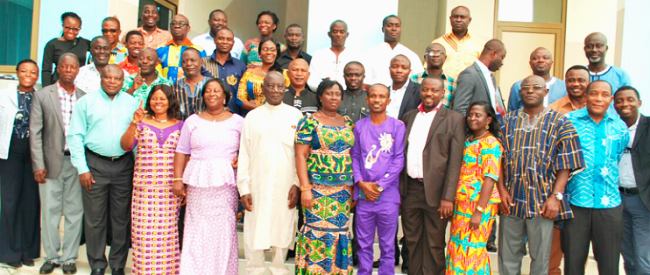The Ministry of Gender Children and Social Protection is to enroll 65,147 additional households in 31 districts from seven regions onto the Livelihood Empowerment Against Poverty (LEAP) Programme by next month.
The beneficiary districts are from the Brong Ahafo, Ashanti, Volta, Central, Eastern, Western and Greater Accra regions.
This is under LEAP’s expansion phase II A programme, while the Phase II B would be completed in December to increase the beneficiary households from 147,881, as of July this year, to 250,000 households by the end of the year.
LEAP is a cash transfer programme aimed at reducing poverty by increasing consumption and promoting access to services and opportunities among the extreme poor and vulnerable persons. It is the government’s flagship social protection programme which is being managed by the Gender Ministry and implemented by the LEAP Management Secretariat.
Sensitisation
As part of the process, a two-day sensitisation workshop has been organised for chief executive and social welfare officers of the beneficiary districts in Koforidua to enlighten the participants on the LEAP Programme, as well as to solicit their support for the implementation of the programme at the district levels.
Delivering a speech at the workshop, the Chief Director of the ministry, Mr Kwesi Armo-Himbson, lauded the metropolitan, municipal and district chief executives for their role in ensuring the effective implementation of the LEAP programme, as well as all the social protection intervention programmes at the district and community levels and stressed that the ministry saw them as “key allies in the achievement of its objectives.”
Reducing poverty
He indicated that the Social Protection agenda was aimed at reducing poverty and vulnerabilities as enshrined in the National Social Protection Policy that was launched in June, 2016.
The policy, according to him, will ensure that all social protection interventions are coordinated properly to ensure that extremely poor households derive maximum benefits from all the social protection interventions.
He mentioned some of the achievements of the LEAP Programme as the transition from manual to electronic payment of LEAP cash grant to beneficiaries, using the E-Zwich platform of Ghana Interbank Payment and Settlement Systems (GhIPSS), and the nationwide registration of members of LEAP beneficiary households onto the National Health Insurance Scheme.
He gave an assurance that the programme was on course to reach the target by the end of 2016.
Commendation
For his part, the Director of Research from the Local Government Service, Dr Charles Kesse, lauded the ministry for its efforts to create a voice for the voiceless in the society.
He stated that the social protection interventions being implemented under the MoGCSP worked into Ghana’s decentralisation process, which gave decision-making power to the people at the local level.
He reiterated that the Local Government Service would continue to support the ministry in the implementation of social protection interventions.

